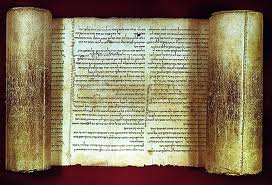- You are here:
- Home
- Christian Apologetics
- The Bible is Unique
 In fact, it is wrong to think of the Bible as just one book. It is actually a collection of books, written over a huge period of time in many different locations and by dozens of people.
In fact, it is wrong to think of the Bible as just one book. It is actually a collection of books, written over a huge period of time in many different locations and by dozens of people.
For a moment, consider that it is not a book that claims supernatural authorship, and approach an open minded survey of it similar to any survey of any object of antiquity. Since we cannot prove that the Bible is 'inspired' by using Biblical passages (that would be using circular arguments!) we can begin by proving that it is a legitimate and trustworthy manuscript, and THEN consider what it says. Once it is proven reliable, in fact it will be proven MORE reliable than any other ancient manuscript, we can assume that it is worthy of serious consideration of its subject matter.
So, consider this assertion: an honest skeptic or agnostic cannot honestly doubt the impact and uniqueness of the Bible. In fact, the noted French skeptic Rousseau considered the possibility of the Bible being an elaborate hoax and sums up the obvious conclusion as thus:
“I must confess to you that the majesty of the Scriptures astonishes me; the holiness of the evangelists speaks to my heart and has such striking characters of truth, and is, moreover, so perfectly inimitable, that if it had been the invention of men, the inventors would be greater than the greatest heroes!” As quoted by Josh McDowell, A Ready Defense; pg 406
We have previously discussed the logic of a Creator leaving us a record of His intentions. If the Bible is truly this record, it should logically stand up to the greatest scrutiny, and provide incredibly insightful instruction. One must pursue the study of the Bible and its teachings with his presuppositions set aside, and seek the Truth, based upon the evidence alone and not any preconceived notions. With this in mind, this web is developed to provide basic understanding of the Bible and its history, so that we can consider some basic questions about the Bible, see if it is worthy of our study, and whether it is consistent with what we might expect of a supposed 'revelation' from God.
What is it that makes the Bible so special?
Lets begin with what makes the Bible unique. Remember our discussion about the Bible's uniqueness when we described how we can know that God exists. For a refresher:
More than just any other book, even any other 'religious' book, the Bible is singularly unique. It is neither a single book, nor is it written by one person, as are most 'religious' texts. It is a collection of 66 books that were written by 40 or more different authors in three different languages, in 3 different continents. These books were written over a period of about 1600 years. The authors represent society at large. They were not just scholars and preachers, but they also ranged from common folk such as shepherds, doctors, government officials, fishermen, and tax collectors, to Kings. There are many styles of journalistic method involved, including history, poetry, government records, dialogue, parables, sermons, prophecy, letters and religious instruction. The Bible has been translated into over 1200 different languages or dialects. Despite this huge diversity of history, there is one central theme of the whole collection of writings: that God loves us and has a plan for our lives.
The only other 'competing' scripture (in the sense that it claims to be the 'word of God'), the Koran, was written by ONE man, and has exponentially less evidence in antiquity, and many other aspects that raise eyebrows for a book that claims 'divine inspiration.' At a glance, one can tell the vast differences between the Bible and the Koran – but more on that later.
To summarize, the Bible is unique in it's claims, unparalleled in documentation, miraculously transmitted through the ages, clear and unequivocal in its message from God, and capable of changing lives.
The following web pages will assist you in a little more history and evidence, so you can begin your journey of understanding the most amazing book in the history of the world. And for the sake of Christianity, the Gospels bear the ultimate importance, because they declare the words and works of Jesus and include the cornerstones of the Christian faith. Regarding these, we can be assured that:
"Archaeological, historical, and documentary evidence, scientific and medical evidence, evidence presented by the arts, evidence of statistical probabilities – all types of evidence exist to prove much more than a sufficient case that the testimony of the writers of the Gospels is true." Pamela Binnings Ewen, Faith On Trial, pg 11.
By keeping this in mind and honestly and openly studying the evidence provided in this site and elsewhere, we can rationally conclude that the Bible is what it claims to be…the written documentation of the actions of God toward mankind, and was provided by Him for us to study and determine the will of the Creator.